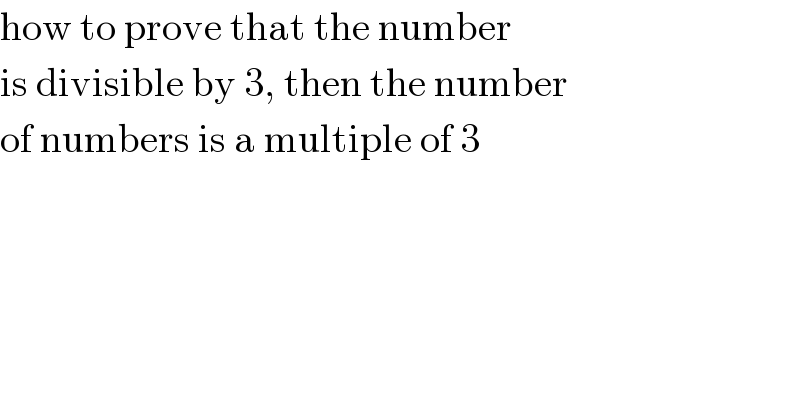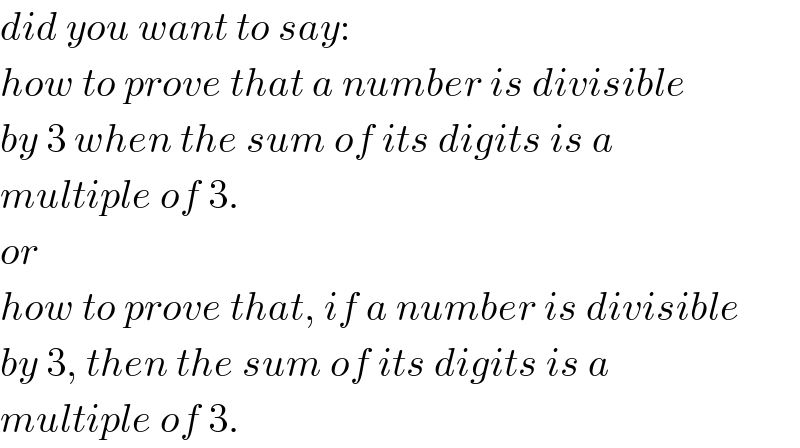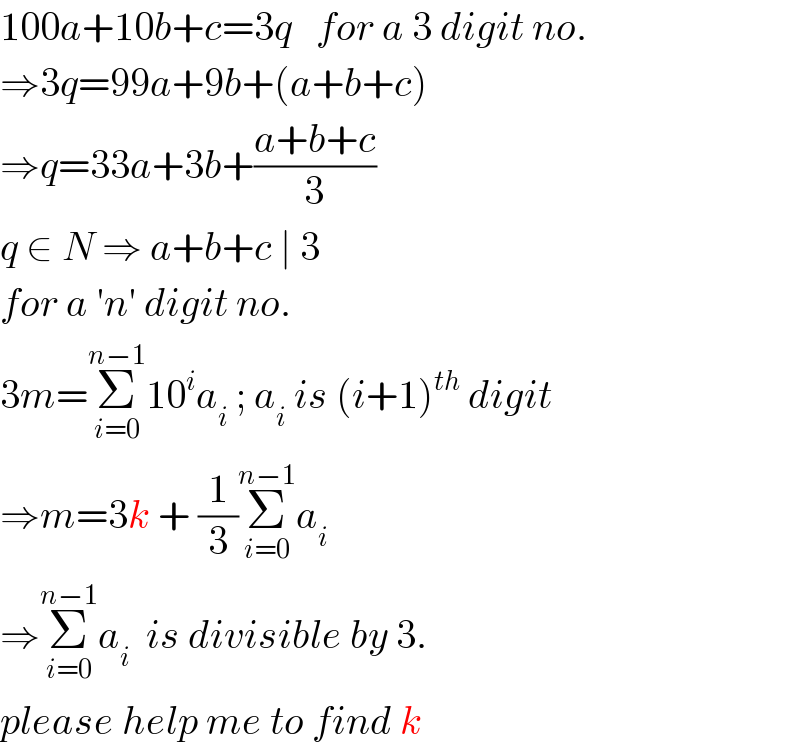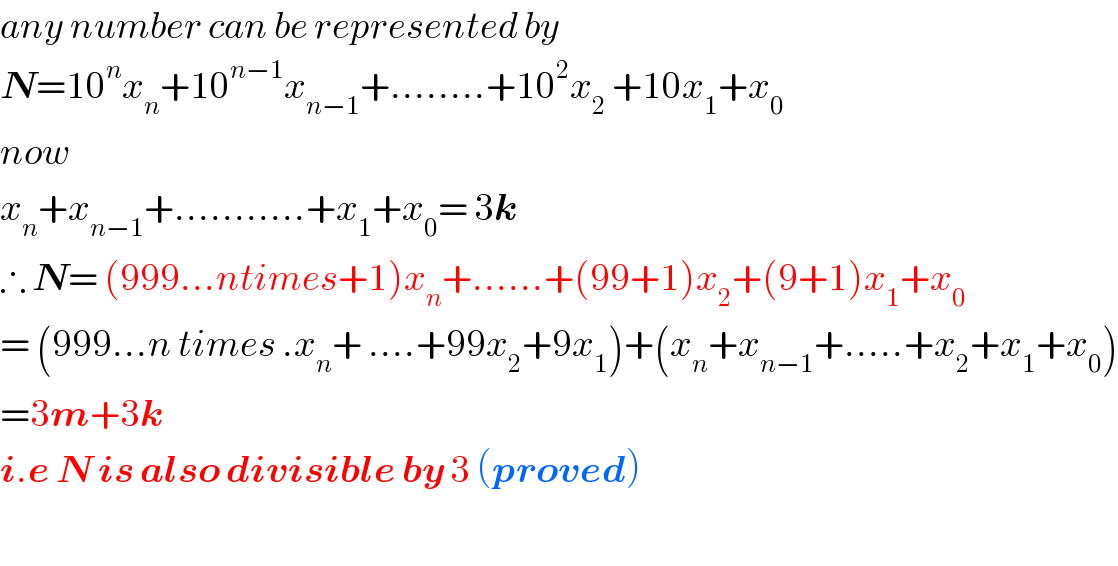
Question and Answers Forum
Question Number 81647 by john santu last updated on 14/Feb/20

Commented by mr W last updated on 14/Feb/20

Commented by Kunal12588 last updated on 14/Feb/20

Commented by Prithwish Sen 1 last updated on 14/Feb/20

Commented by mr W last updated on 14/Feb/20
![3m=Σ_(i=0) ^(n−1) 10^i a_i 3m=Σ_(i=0) ^(n−1) (1+9)^i a_i 3m=Σ_(i=0) ^(n−1) [Σ_(k=0) ^i C_k ^i 9^k ]a_i 3m=Σ_(i=0) ^(n−1) [1+Σ_(k=1) ^i C_k ^i 9^k ]a_i 3m=Σ_(i=0) ^(n−1) a_i +Σ_(i=1) ^(n−1) (Σ_(k=1) ^i C_k ^i 3^(2k) )a_i 3m=Σ_(i=0) ^(n−1) a_i +3h ⇒Σ_(i=0) ^(n−1) a_i =3(m−h)=multiple of 3](Q81686.png)
Commented by Prithwish Sen 1 last updated on 14/Feb/20

Commented by mr W last updated on 14/Feb/20

Commented by john santu last updated on 14/Feb/20

Commented by Prithwish Sen 1 last updated on 15/Feb/20

